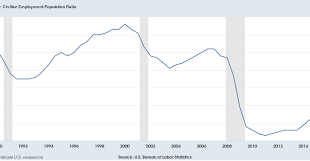Alan Blinder published recently two columns on the WSJ (here and here) on the need to exercise fiscal restraint. In both cases he complains that the fiscal deficit is too large. Note that he is not saying that this is always the case, he emphasizes that in the second and most recent piece. The reason, as always, is that we are close to full employment. In his words:"... today we are back at full employment, or perhaps beyond it, ad economic growth kooks solid. The economy doesn't need...
Read More »Nancy Fraser — From Progressive Neoliberalism to Trump—and Beyond
In today’s widespread rejection of politics as usual, an objective systemwide crisis has found its subjective political voice. The political strand of our general crisis is a crisis of hegemony. Donald Trump is the poster child for this hegemonic crisis. But we cannot understand his ascent unless we clarify the conditions that enabled it. And that means identifying the worldview that Trumpism displaced and charting the process through which it unraveled. The indispensable ideas for this...
Read More »Simon Wren-Lewis — Neoliberalism: How Seeing Markets as Perfect Turned into an Ideology Justifying Crony Capitalism
That idea, that the market ensures that only the most efficient prosper, is a central message of neoliberal ideology, and it has held UK and US governments under its sway since the time of Thatcher and Reagan. But that ideology contains a large and deep internal contradiction, which applies particularly to large firms like Carillion. To see what that contraction is, we need to talk about ordoliberalism and Ronald Coase.Ordoliberalism is widely known as the German version of neoliberalism....
Read More »Bill Mitchell — US labour market reality debunks mainstream view about structural impediments
An enduring myth among mainstream economists is that so-called ‘structural’ impediments in the labour market prevent aggregate spending initiatives from government being an effective solution to mass unemployment. According to this view, if the government attempts to reduce the unemployment rate below some ‘natural rate’ then accelerating inflation will be the only outcome. The ‘natural rate’ can, in turn, only be reduced by structural policies – attacks on trade unions, welfare state...
Read More »Wolfgang Streeck — The Return of the Repressed
Neoliberalism arrived with globalization or else globalization arrived with neoliberalism; that is how the Great Regression began. [1] In the 1970s, the capital of the rebuilt industrial nations started to work its way out of the national servitude in which it had been forced to spend the decades following 1945. [2] The time had come to take leave of the tight labour markets, stagnant productivity, falling profits and the increasingly ambitious demands of trade unions under a mature,...
Read More »The Latin American Crisis
Downhill I have not written on the problems in the region for a while now (last stuff that is more comprehensive here in the talk at Keene, for example), in part, because the whole theme is a bit depressing (more recently the Honduras crisis, and the return of the right in Chile). As I have noted before, there is no doubt that the collapse of commodity prices has played a significant role in the downturn in the region, but it is also true that a lot of the problems are political in...
Read More »Aabid Firdausi — International Trade and Globalization: Are Benefits Truly Mutual?
The euphoria around international trade and the general consensus regarding capitalism’s inevitable sustenance among countries of the Global South is at least partly due to the absence of an alternative after the collapse of the Soviet Union. The politics of capitalism, with its expansionary dynamics, has assumed a truly “global” avatar by aggressively pursuing a neoliberal globalization agenda. Thus, we see much hype around the numerous trade treaties that governments around the world...
Read More »Hassan Hakimian — What’s Driving Iran’s Protests?
Not a bad article considering that Project Syndicate is an organ of the corporate elite. The author does recognize that the economic protest is the result of President Rouhani's neoliberal program to deliver the promised increase in prosperity that neoliberals assume to be widely distribute by trickle down. So, even though the article is written from the neoliberal point of view, it does admit the failure of neoliberal reformers to deliver on their promises to the country as a whole,...
Read More »James George Jatras — Iran and Myths of Revolution
Backgrounder. Jatras is one of the few mentioning that some of the economic frustration is the result President Rouhani's neoliberal "reform" that shrank the the welfare state and expanded the market state to improve the economy and integrate Iran into the global economy after the nuclear deal and lifting of some sanctions. This policy further disadvantaged the have-nots that make up the bulk of the protestors. The neoliberal answer is to wait patiently; it takes time for the gains to...
Read More »Bill Mitchell — The IMF still has the same spots
Just before Xmas (December 22, 2017), the IMF proved once again that leopards don’t change their spots. Thy released a Working Paper (No. 17/286) – Australia’s Fiscal Framework: Revisiting Options for a Fiscal Anchor – that demonstrated they hadn’t learned a thing from the last decade of crisis and fiscal interventions (stimulative and opposite). The paper demonstrates no understanding of context, history, or the role that fiscal policy should play in advancing general well-being. It is a...
Read More » Heterodox
Heterodox


